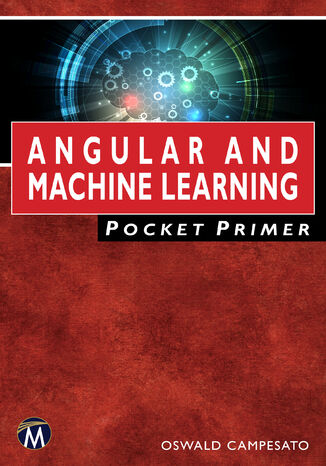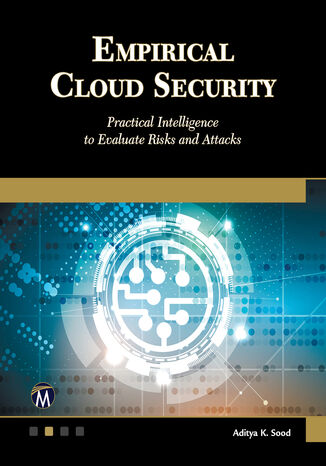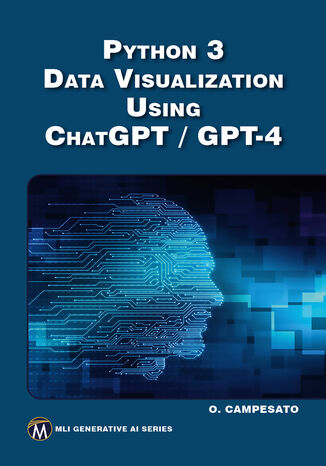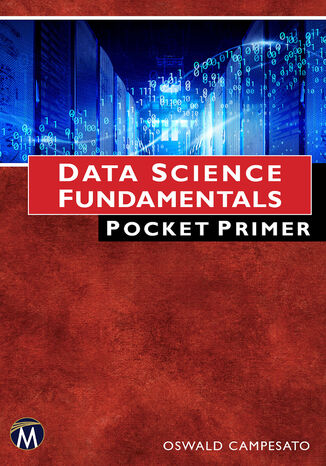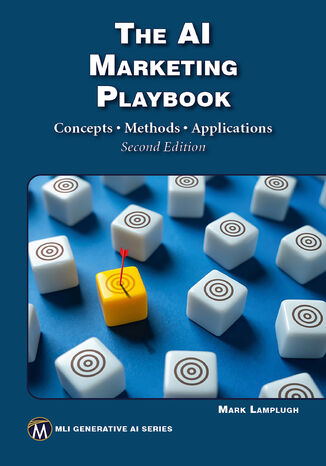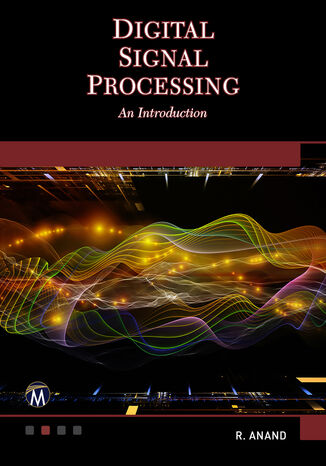Kategorien
-
- Bitcoin
- Geschäftsfrau
- Coaching
- Controlling
- E-Business
- Ökonomie
- Finanzen
- Börse und Investitionen
- Persönliche Kompetenzen
- Computer im Büro
- Kommunikation und Verhandlungen
- Kleines Unternehmen
- Marketing
- Motivation
- Multimedia-Training
- Immobilien
- Überzeugung und NLP
- Steuern
- Sozialpolitik
- Handbȕcher
- Präsentationen
- Führung
- Public Relation
- Berichte, Analysen
- Geheimnis
- Social Media
- Verkauf
- Start-up
- Ihre Karriere
- Management
- Projektmanagement
- Personal (HR)
-
- Architektura i wnętrza
- Sicherheit und Gesundheit am Arbeitsplatz
- Biznes i Ekonomia
- Haus und Garten
- E-Business
- Ekonomia i finanse
- Esoterik
- Finanzen
- Persönliche Finanzen
- Unternehmen
- Fotografie
- Informatik
- HR und Gehaltsabrechnung
- Frauen
- Computer, Excel
- Buchhaltung
- Kultur und Literatur
- Wissenschaftlich und akademisch
- Umweltschutz
- meinungsbildend
- Bildung
- Steuern
- Reisen
- Psychologie
- Religion
- Landwirtschaft
- Buch- und Pressemarkt
- Transport und Spedition
- Gesundheit und Schönheit
-
- Office-Programme
- Datenbank
- Bioinformatik
- IT Branche
- CAD/CAM
- Digital Lifestyle
- DTP
- Elektronik
- Digitale Fotografie
- Computergrafik
- Spiele
- Hacking
- Hardware
- IT w ekonomii
- Wissenschaftliche Pakete
- Schulbücher
- Computergrundlagen
- Programmierung
- Mobile-Programmierung
- Internet-Server
- Computernetzwerke
- Start-up
- Betriebssysteme
- Künstliche Inteligenz
- Technik für Kinder
- Webmaster
-
- Anthologien
- Ballade
- Biografien und Autobiografien
- Für Erwachsene
- Drama
- Tagebücher, Memoiren, Briefe
- Epos
- Essay
- Science Fiction
- Felietonys
- Fiktion
- Humor, Satire
- Andere
- Klassisch
- Krimi
- Sachbücher
- Belletristik
- Mity i legendy
- Nobelpreisträger
- Kurzgeschichten
- Gesellschaftlich
- Okultyzm i magia
- Erzählung
- Erinnerungen
- Reisen
- Gedicht
- Poesie
- Politik
- Populärwissenschaftlich
- Roman
- Historischer Roman
- Prosa
- Abenteuer
- Journalismus
- Reportage
- Romans i literatura obyczajowa
- Sensation
- Thriller, Horror
- Interviews und Erinnerungen
-
- Archäologie
- Bibliotekoznawstwo
- Filmwissenschaft
- Philologie
- Polnische Philologie
- Philosophie
- Finanse i bankowość
- Erdkunde
- Wirtschaft
- Handel. Weltwirtschaft
- Geschichte und Archäologie
- Kunst- und Architekturgeschichte
- Kulturwissenschaft
- Linguistik
- Literaturwissenschaft
- Logistik
- Mathematik
- Medizin
- Geisteswissenschaften
- Pädagogik
- Lehrmittel
- Populärwissenschaftlich
- Andere
- Psychologie
- Soziologie
- Theatrologie
- Teologie
- Theorien und Wirtschaftswissenschaften
- Transport i spedycja
- Sportunterricht
- Zarządzanie i marketing
-
- Sicherheit und Gesundheit am Arbeitsplatz
- Geschichte
- Verkehrsregeln. Führerschein
- Rechtswissenschaften
- Gesundheitswesen
- Allgemeines. Wissenskompendium
- akademische Bücher
- Andere
- Bau- und Wohnungsrecht
- Zivilrecht
- Finanzrecht
- Wirtschaftsrecht
- Wirtschafts- und Handelsrecht
- Strafrecht
- Strafrecht. Kriminelle Taten. Kriminologie
- Internationales Recht
- Internationales und ausländisches Recht
- Gesundheitsschutzgesetz
- Bildungsrecht
- Steuerrecht
- Arbeits- und Sozialversicherungsrecht
- Öffentliches, Verfassungs- und Verwaltungsrecht
- Familien- und Vormundschaftsrecht
- Agrarrecht
- Sozialrecht, Arbeitsrecht
- EU-Recht
- Industrie
- Agrar- und Umweltschutz
- Wörterbücher und Enzyklopädien
- Öffentliche Auftragsvergabe
- Management
-
- Afrika
- Alben
- Südamerika
- Mittel- und Nordamerika
- Australien, Neuseeland, Ozeanien
- Österreich
- Asien
- Balkan
- Naher Osten
- Bulgarien
- China
- Kroatien
- Tschechische Republik
- Dänemark
- Ägypten
- Estland
- Europa
- Frankreich
- Berge
- Griechenland
- Spanien
- Niederlande
- Island
- Litauen
- Lettland
- Mapy, Plany miast, Atlasy
- Miniführer
- Deutschland
- Norwegen
- Aktive Reisen
- Polen
- Portugal
- Andere
- Przewodniki po hotelach i restauracjach
- Russland
- Rumänien
- Slowakei
- Slowenien
- Schweiz
- Schweden
- Welt
- Türkei
- Ukraine
- Ungarn
- Großbritannien
- Italien
-
- Lebensphilosophien
- Kompetencje psychospołeczne
- zwischenmenschliche Kommunikation
- Mindfulness
- Allgemeines
- Überzeugung und NLP
- Akademische Psychologie
- Psychologie von Seele und Geist
- Arbeitspsychologie
- Relacje i związki
- Elternschafts- und Kinderpsychologie
- Problemlösung
- Intellektuelle Entwicklung
- Geheimnis
- Sexualität
- Verführung
- Aussehen ind Image
- Lebensphilosophien
-
- Bitcoin
- Geschäftsfrau
- Coaching
- Controlling
- E-Business
- Ökonomie
- Finanzen
- Börse und Investitionen
- Persönliche Kompetenzen
- Kommunikation und Verhandlungen
- Kleines Unternehmen
- Marketing
- Motivation
- Immobilien
- Überzeugung und NLP
- Steuern
- Sozialpolitik
- Handbȕcher
- Präsentationen
- Führung
- Public Relation
- Geheimnis
- Social Media
- Verkauf
- Start-up
- Ihre Karriere
- Management
- Projektmanagement
- Personal (HR)
-
- Anthologien
- Ballade
- Biografien und Autobiografien
- Für Erwachsene
- Drama
- Tagebücher, Memoiren, Briefe
- Epos
- Essay
- Science Fiction
- Felietonys
- Fiktion
- Humor, Satire
- Andere
- Klassisch
- Krimi
- Sachbücher
- Belletristik
- Mity i legendy
- Nobelpreisträger
- Kurzgeschichten
- Gesellschaftlich
- Okultyzm i magia
- Erzählung
- Erinnerungen
- Reisen
- Poesie
- Politik
- Populärwissenschaftlich
- Roman
- Historischer Roman
- Prosa
- Abenteuer
- Journalismus
- Reportage
- Romans i literatura obyczajowa
- Sensation
- Thriller, Horror
- Interviews und Erinnerungen
-
- Archäologie
- Philosophie
- Wirtschaft
- Handel. Weltwirtschaft
- Geschichte und Archäologie
- Kunst- und Architekturgeschichte
- Kulturwissenschaft
- Literaturwissenschaft
- Mathematik
- Medizin
- Geisteswissenschaften
- Pädagogik
- Lehrmittel
- Populärwissenschaftlich
- Andere
- Psychologie
- Soziologie
- Teologie
- Zarządzanie i marketing
-
- Lebensphilosophien
- zwischenmenschliche Kommunikation
- Mindfulness
- Allgemeines
- Überzeugung und NLP
- Akademische Psychologie
- Psychologie von Seele und Geist
- Arbeitspsychologie
- Relacje i związki
- Elternschafts- und Kinderpsychologie
- Problemlösung
- Intellektuelle Entwicklung
- Geheimnis
- Sexualität
- Verführung
- Aussehen ind Image
- Lebensphilosophien
CSS3 and SVG with Gemini. Explore advanced CSS3 and SVG techniques with Gemini technology
Mercury Learning and Information, Oswald Campesato
This book serves as a comprehensive guide to mastering CSS3 and SVG technologies, with a focus on their integration with Gemini. It begins with an introduction to Generative AI and prompt engineering, laying the foundation for using Gemini effectively. Detailed chapters explore CSS3 fundamentals and advanced 3D animation techniques, offering practical examples to enhance understanding.The book dives into scalable vector graphics (SVG) basics, advancing into complex designs, and demonstrates how to integrate SVG with Gemini for creating dynamic visuals. Structured to cater to both beginners and advanced learners, each chapter provides in-depth coverage of concepts and hands-on exercises to apply knowledge practically.Readers will gain skills to create professional-grade graphics and animations, leveraging the power of Gemini and combining it with CSS3 and SVG. This resourceful book is ideal for web developers, designers, and anyone aiming to expand their expertise in modern web technologies.
Linear Algebra. Learn the Foundations and Applications of Vector Spaces
Mercury Learning and Information, L. Shen, Haohao Wang, J. Wojdylo
This book introduces the fundamental concepts of linear algebra and applies the theorems in computation-oriented applications. It is suitable for a one-semester course and combines definitions and proofs with a focus on computational applications. Examples illustrate the use of software packages such as Mathematica, Maple, and Sage.The journey begins with vector spaces and progresses through linear transformations and operators. It then covers orthogonal bases and matrix decomposition. The material includes a brief introduction to aspects of abstract algebra related to linear algebra, such as groups, rings, modules, fields, and polynomials over fields.Understanding these concepts is crucial for solving complex problems in various fields. This book transitions readers from basic definitions to advanced computational applications, blending theoretical knowledge with practical skills. It is an essential resource for mastering linear algebra and its applications.
Mercury Learning and Information, Oswald Campesato
As part of the best-selling *Pocket Primer* series, this book introduces readers to basic machine learning concepts and integrates them into Angular applications. It offers a fast-paced introduction to essential machine learning features and an overview of popular classifiers. Covering Angular functionality, basic machine learning concepts, and key classification algorithms, the book includes numerous code samples and figures. Topics such as TensorFlow and Keras are also explored.The book begins with a quick introduction to Angular, followed by UI controls, user input, and forms and services. As you progress, you will delve into machine learning, working with classifiers, and integrating TensorFlow.js with Angular. These foundational topics ensure a comprehensive grasp of both Angular and machine learning principles, equipping you with practical skills for developing sophisticated applications.Understanding these concepts is crucial for enhancing Angular projects with machine learning capabilities. This book transitions you from a novice to a proficient developer, equipped with the knowledge and tools needed to create advanced applications. Companion files with source code and color figures enhance the learning experience, making this book an invaluable resource for integrating machine learning with Angular.
Empirical Cloud Security. A Guide To Practical Intelligence to Evaluate Risks and Attacks
Mercury Learning and Information, Aditya K. Sood
This book, updated to include the latest research and developments in cloud security, is essential for security professionals, DevOps engineers, penetration testers, cloud security engineers, and cloud software developers. It offers practical approaches to securing cloud infrastructure and applications against threats, attacks, and data breaches. The content is refined for better accessibility and engagement, providing a comprehensive guide to cloud security.The course starts with fundamental cloud security concepts and progresses to hands-on assessment techniques based on real-world case studies. It covers cloud architecture, IAM for authentication and authorization, network security, database and storage security, cryptography controls, secure code review, and monitoring and logging. The practical strategies for assessing security and privacy are crucial for building a robust cloud infrastructure.The journey concludes with advanced topics such as privacy in the cloud, identifying security flaws and attacks, and understanding the impact of malicious code. New case studies reveal how threat actors exploit cloud environments, offering preventative measures to enhance cloud security. This structured approach ensures a thorough understanding and practical application of cloud security principles.
Mercury Learning and Information, Oswald Campesato
This book teaches Python 3 programming and data visualization, exploring cutting-edge techniques with ChatGPT/GPT-4 for generating compelling visuals. It starts with Python essentials, covering basic data types, loops, functions, and advanced constructs like dictionaries and matrices. The journey progresses to NumPy's array operations and data visualization using libraries such as Matplotlib and Seaborn. The book also covers tools like SVG graphics and D3 for dynamic visualizations.The course begins with foundational Python concepts, moves into NumPy and data visualization with Pandas, Matplotlib, and Seaborn. Advanced chapters explore ChatGPT and GPT-4, demonstrating their use in creating data visualizations from datasets like the Titanic. Each chapter builds on the previous one, ensuring a comprehensive understanding of Python and visualization techniques.These concepts are crucial for Python practitioners, data scientists, and anyone in data analytics. This book transitions readers from basic Python programming to advanced data visualization, blending theoretical knowledge with practical skills. Companion files with code, datasets, and figures enhance learning, making this an essential resource for mastering Python and data visualization.
Data Science Fundamentals Pocket Primer. An Essential Guide to Data Science Concepts and Techniques
Mercury Learning and Information, Oswald Campesato
This book, part of the Pocket Primer series, introduces the basic concepts of data science using Python 3 and other applications. It offers a fast-paced introduction to data analytics, statistics, data visualization, linear algebra, and regular expressions. The book features numerous code samples using Python, NumPy, R, SQL, NoSQL, and Pandas. Companion files with source code and color figures are available.Understanding data science is crucial in today's data-driven world. This book provides a comprehensive introduction, covering key areas such as Python 3, data visualization, and statistical concepts. The practical code samples and hands-on approach make it ideal for beginners and those looking to enhance their skills.The journey begins with working with data, followed by an introduction to probability, statistics, and linear algebra. It then delves into Python, NumPy, Pandas, R, regular expressions, and SQL/NoSQL, concluding with data visualization techniques. This structured approach ensures a solid foundation in data science.
Mercury Learning and Information, Mark Lamplugh
This book offers a comprehensive guide to integrating AI into modern marketing strategies, transforming how businesses engage with audiences. It begins with an overview of AI’s role in marketing, its evolution, and its benefits in driving innovation. Early chapters cover foundational topics like AI, machine learning, and data preparation for effective AI implementation.The book then explores practical applications, such as analyzing customer behavior for personalized experiences and using AI-powered chatbots for improved customer service. You’ll learn to apply image and video recognition for visual marketing and leverage AI for social media strategies that boost engagement. The book also covers predictive analytics, AI-driven email marketing, and techniques to optimize SEO and content marketing.Further chapters focus on automating marketing processes and using AI to support sales enablement with actionable insights. The final chapter discusses ethical considerations and the future of AI in marketing, emphasizing the balance between automation and human creativity. This book equips marketing professionals and business leaders with the tools to harness AI’s potential for impactful marketing strategies.
Mercury Learning and Information, R. Anand
This book covers the fundamental concepts of digital signal processing (DSP), introducing discrete-time signals, the z-transform, frequency analysis, discrete and fast Fourier transforms, digital filters, FIR, and statistical DSP. With applications ranging from engineering to telecommunications and medical imaging, this text focuses on representing signals with mathematical models and processing them using discrete-time systems.Understanding DSP is crucial for professionals in various fields as it allows for effective signal representation and manipulation. The book starts with an introduction to DSP and a review of discrete-time signals and systems, followed by a detailed exploration of the z-transform and frequency analysis using DTFT. It further delves into discrete Fourier transforms, fast Fourier transform algorithms, and the implementation of discrete-time systems.The journey continues with in-depth discussions on digital filters, including the design and analysis of infinite impulse response (IIR) and finite impulse response (FIR) filters. The book also covers statistical digital signal processing, multirate DSP, and applications in speech and radar. Through a variety of exercises and a comprehensive glossary, readers will gain a solid understanding of DSP fundamentals and applications.



